The Aspen Institute
To support tribal communities that are utilizing civic engagement for opportunity youth engagement, leadership and curriculum development, and community designed workshops
The DTG Foundation advances the principles of America’s founding documents through educational programs for students across all media so that our young Americans can be better informed about the founding of our republic and the citizens who created the founding documents. A greater understanding of our American principles and ideas will lead to more informed citizens and voters.
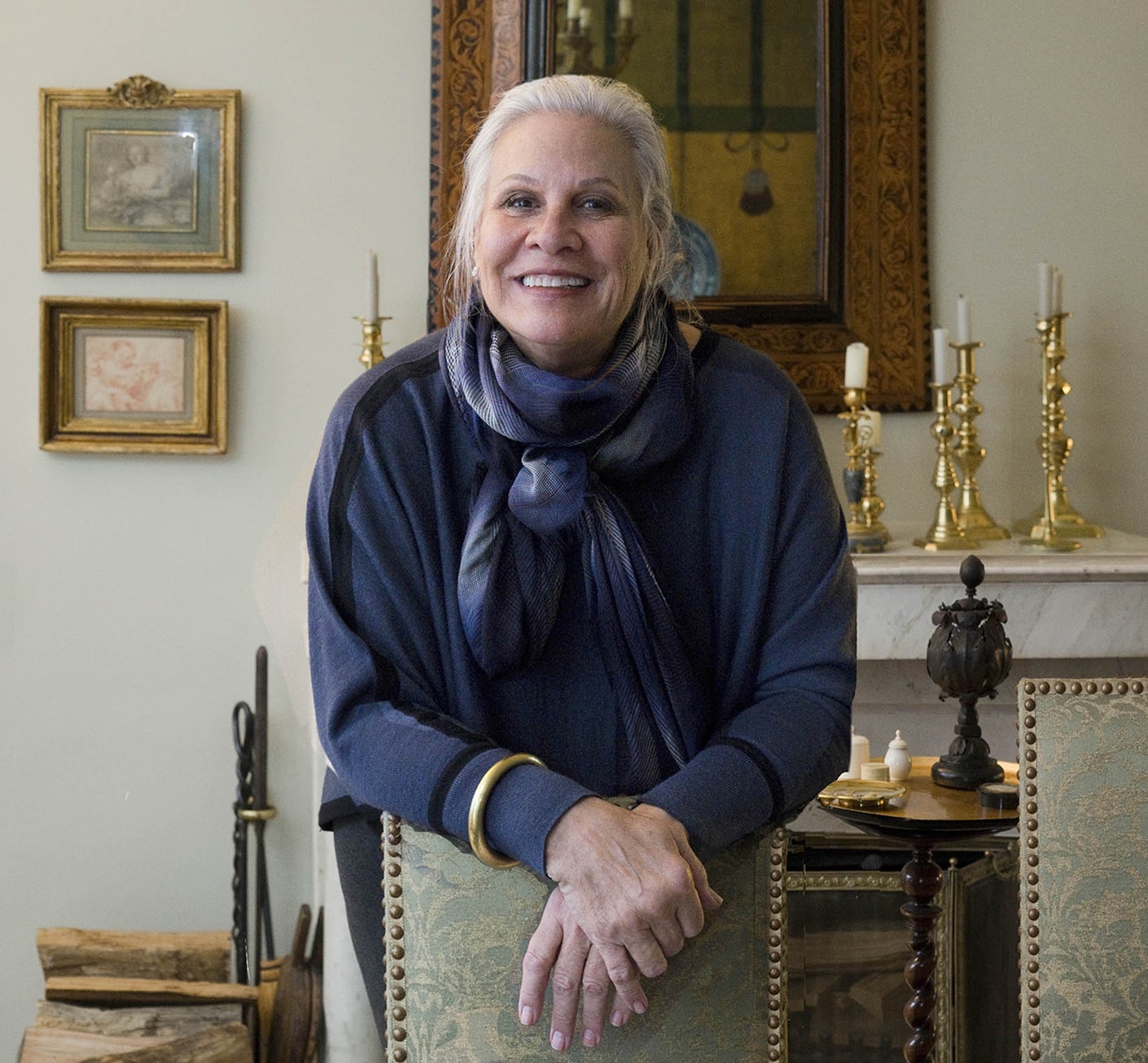
© Gitty Darugar
Dorothy Tapper Goldman (1944-2023) was a force—curious, determined, adventurous, and fun, with a great sense of humor and an infectious laugh. She was a wonderful person to be friends with, and an easy one as well. She was also a visionary with a deep feeling for democracy. She believed in it as the best and most noble form of government.
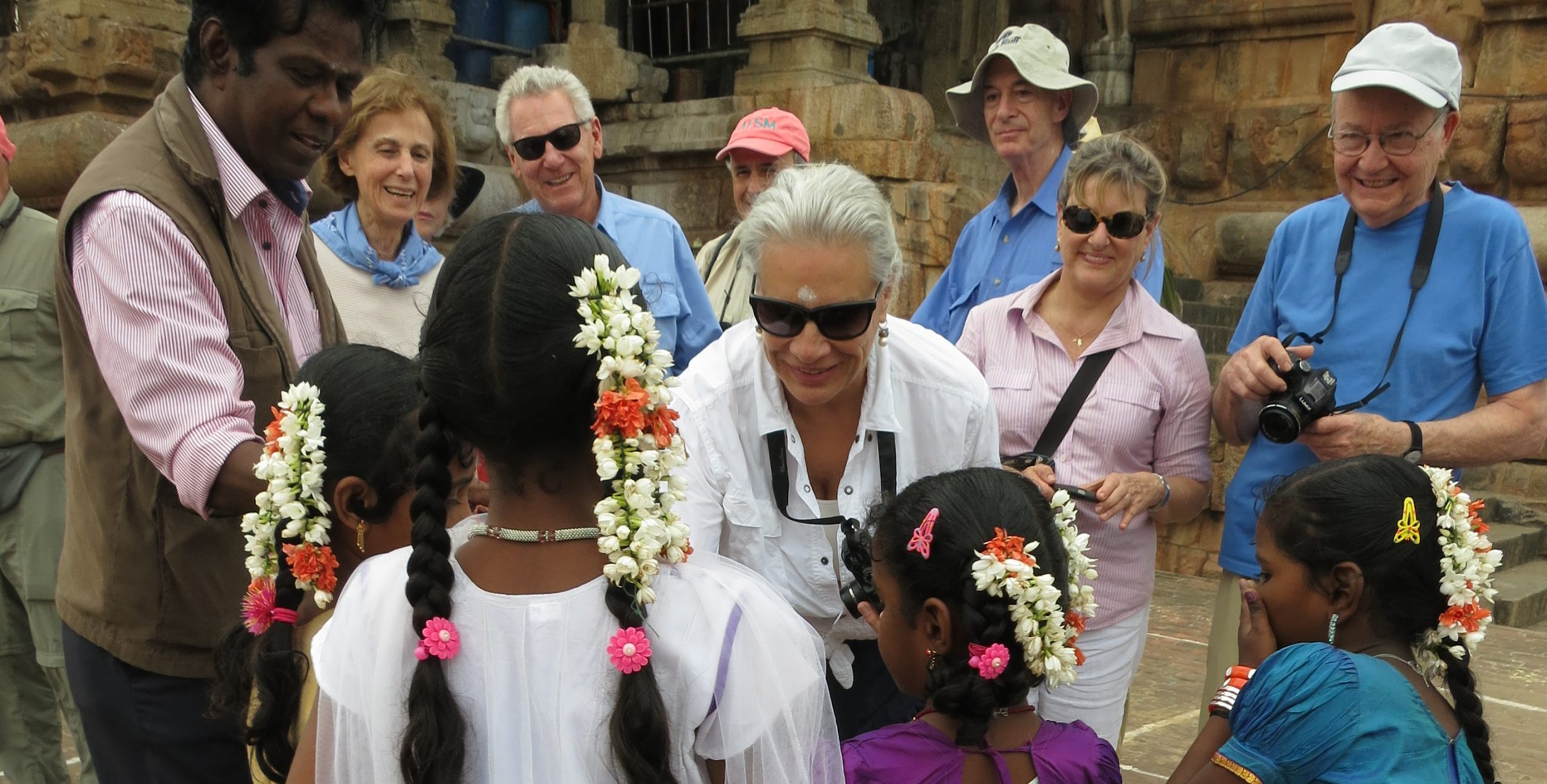
India, Southern
Dorothy and her beloved husband S. Howard Goldman (1930-1997) were stewards of an incomparable American founding document: one of only 14 original copies of the U.S. Constitution printed in 1787. After Howard’s death, Dorothy took their shared interest further by building an unmatched collection of more than 250 U.S. state constitutions and other important historical documents from throughout American history. She shared her collection with the public in Colonists, Citizens, and Constitution: Creating the American Republic, an exhibition that appeared at the New York Historical Society and the Museum of the American Revolution in 2020 and 2021. Her friend Ruth Bader Ginsburg, Associate Justice of the U.S. Supreme Court, wrote the foreword of the accompanying exhibition catalogue.
Later in her life, Dorothy decided to sell her collection, including the U.S. Constitution, and used the proceeds to establish the DTG Foundation. She had strong ideas about what she wanted the DTG Foundation to support and remained open to creative possibilities. Dedicated to furthering the understanding of American constitutional principles, the DTG Foundation provides grants for educational, artistic, and cultural initiatives that advance the civic ideals of America’s founding documents. This was Dorothy’s vision, and today, at one of the most decisive moments in American democracy, the DTG Foundation’s mission is more crucial than ever.
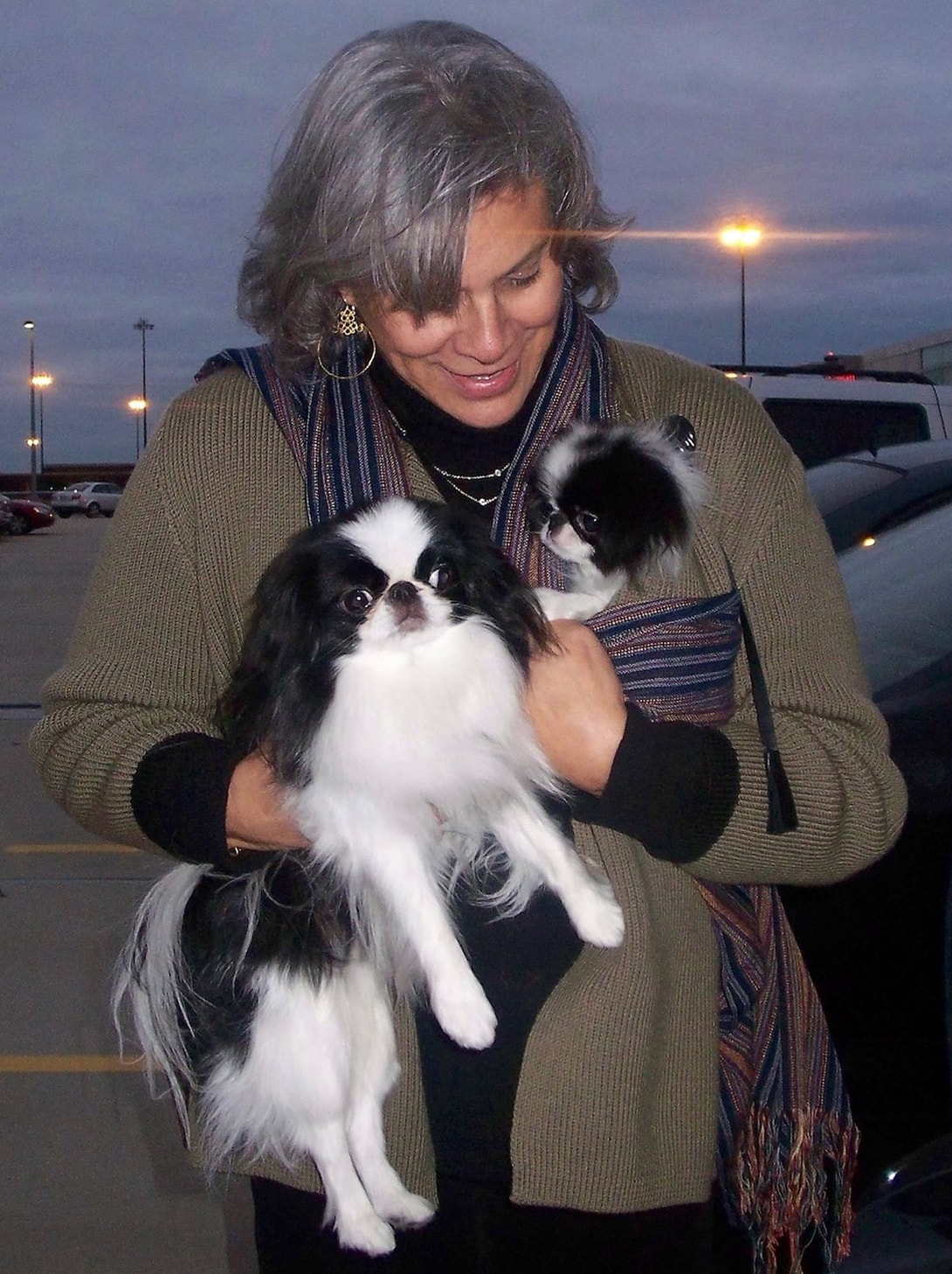
Goldman, Dorothy Tapper
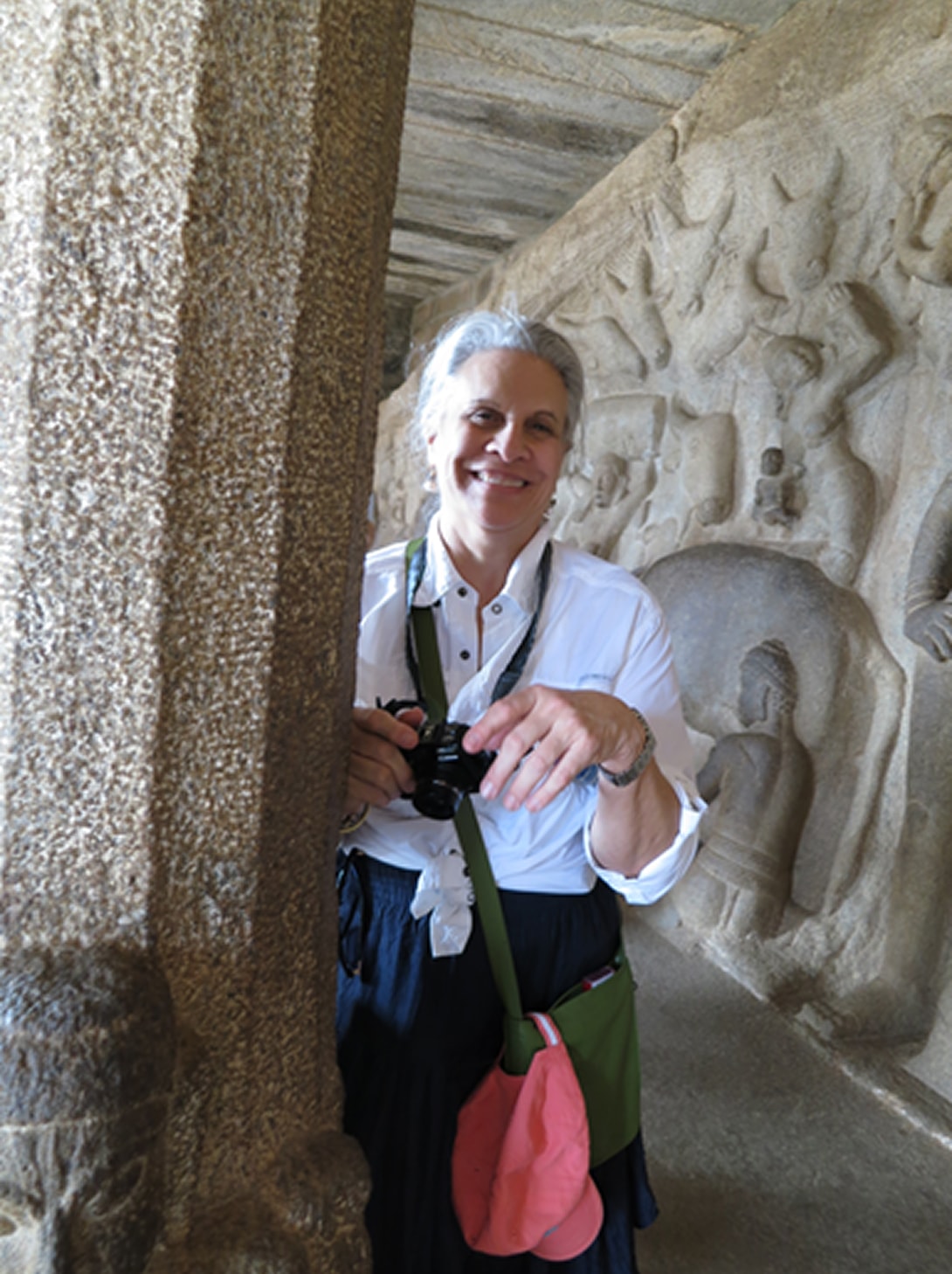
January 13, 2014, India, Krishna mandapa (cave temple) at Mamallapuram
Dorothy approached her philanthropy as an educator. Raised in Cleveland, Ohio, she earned a B.S. in Education from Tufts University and an M.S. in Education from the Massachusetts College of Art. At the culmination of her professional career, she served as a tenured professor at Wentworth Institute of Technology in Boston, where she taught in the departments of Interior Design and Architecture. Earlier in her career she was a preschool teacher, later a practicing artist in her own right with a sculpture studio, and taught sculpture at an independent high school in the Boston suburbs. She had two children, Mark Polansky and Barbra Siskin. She was wildly proud of her two granddaughters, Mia and Avalon Siskin.
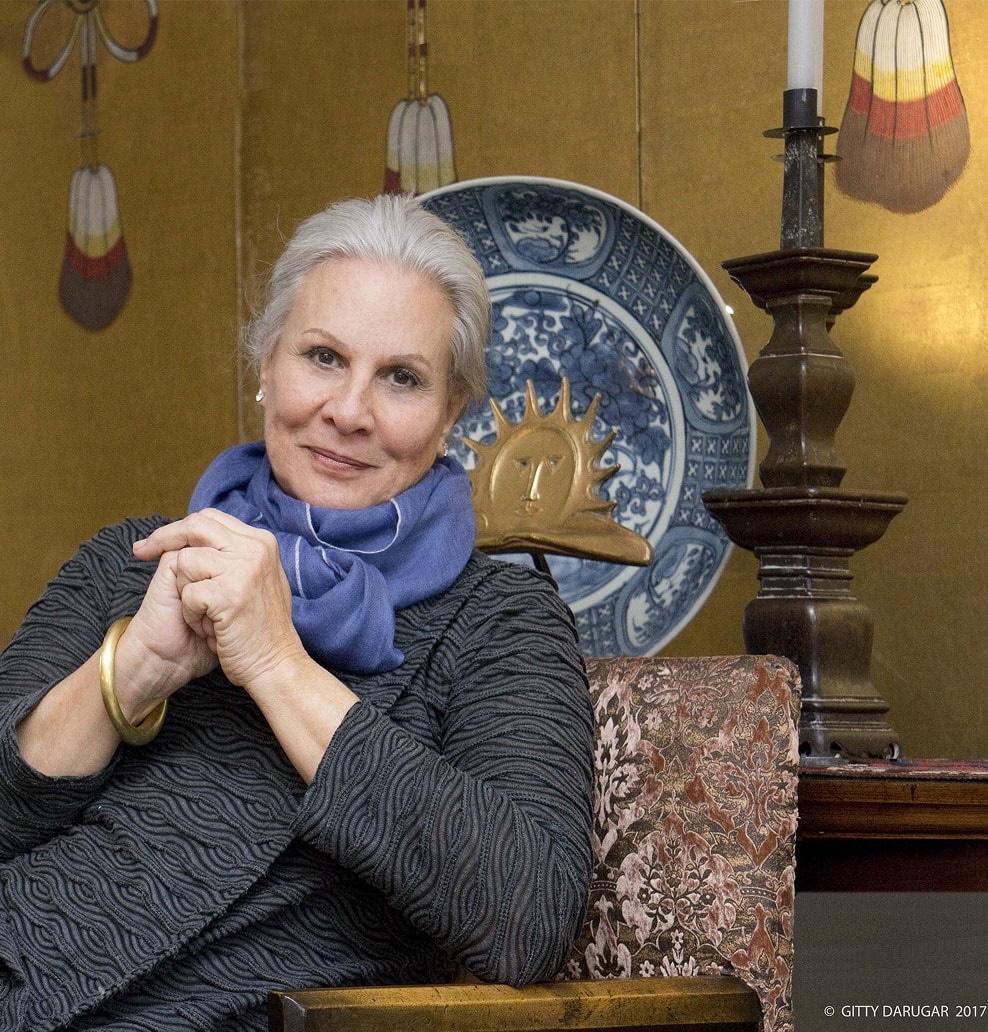
© Gitty Darugar Paris 2017 Dorothy Goldman
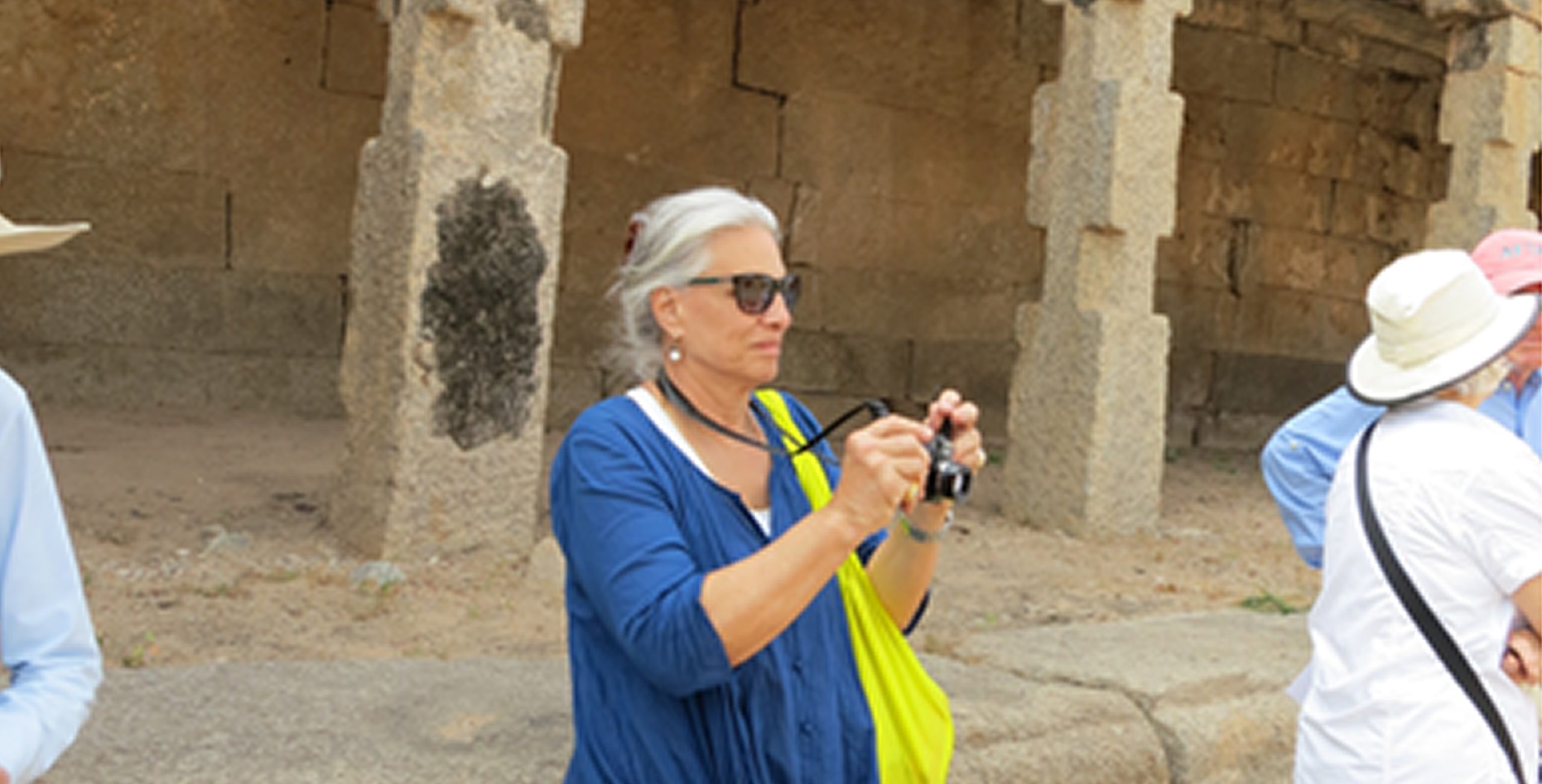
January 24, 2014, India, Hampi, ruins of Vijayanagar capital
Throughout her life Dorothy became involved with and gave generously to many historical and cultural organizations, including the New-York Historical Society, the Jewish Theological Seminary, the Metropolitan Museum of Art, the Smithsonian Museum of American Art, National Constitution Center, and the Supreme Court Historical Society. Dorothy also established and later endowed a Fellowship in Constitutional Studies for the John Simon Guggenheim Memorial Foundation.
Dorothy named her daughter Barbra Siskin as the Executive Director of the DTG Foundation to find ways to create impact and continue the work she started.
Bio courtesy of Edward Hirsch, President, John Simon Guggenheim Memorial Foundation
To support the capital campaign and general operating expenses
For general support
To support and endow the Constitutional Studies Fellowship
To support the Visionary Fund, the Student Support Fund, and the capital campaign
To support the Dorothy Tapper Goldman Center for Teaching Democracy, as well as the continuation and expansion of the Society’s education programming
To support the annual salaries of the Rabbinic and Cantorial Interns
To support Planned Parenthood Gulf Coast and greatest needs
To support the re-installation of the museum’s permanent collection with a focus on incorporating Indigenous work and perspectives in the reinterpreted galleries for a more inclusive story of American art
To support Youth Educational Programs, Cultural Experiences, and the Music Industry Program
To support greatest needs
To support tribal communities that are utilizing civic engagement for opportunity youth engagement, leadership and curriculum development, and community designed workshops
Indigenous Research Internships and Visiting Scholars Program within the Tushingham Ethnoecology and Human Autonomy Lab
Capital campaign and General support
General support
To support an exhibition documenting the Jewish diaspora across time and space from the collections of the Jewish Theological Seminary
General support
To endow the Constitutional Studies Fellowship
To establish a new Fellowship in Indigenous Studies
Thomas J. Watson Library
To research, pilot, and launch new historical simulations
Student Support Fund, Visionary Fund, and the Capital Campaign
Continuation and expansion of the Society’s educational programming
General support
To support the Rabbinic and Cantorial Interns
PP Gulf Coast and greatest need
General support
To support the reinstallation of the museum’s permanent collection with a focus on incorporating Indigenous work and perspectives in the reinterpreted galleries for a more inclusive story of American art
Youth Programs, Cultural Experiences, Music Industry Apprenticeship, and General Support
For the school’s library
General support
Carmack Waterhouse Professor of Legal Theory, Georgetown University Law Center
Expertise
Legal theory, constitutional law and contracts
Project
The reconstructed Constitution
Theodore J. St. Antoine Collegiate Professor of Law, University of Michigan
Expertise
Law, theory and history of the U.S. Constitution
Project
Constitutional authority in the wake of civil war
Dean, University of Virginia School of Law
Expertise
American constitutional and civil rights law
Project
Vagrancy law in the 1960s: published as Vagrant Nation (Oxford U.P., 2016)
Josephine R. Witte Chair, University of Iowa College of Law
Expertise
U.S. legal history, constitutional law
Project
The Law of the Antebellum Frontier, 1796–1857
Stephen Yeazell Endowed Chair in Law, UCLA School of Law
Expertise
Constitutional law and theory, international human rights
Project
The New Commonwealth Model of Constitutionalism (Cambridge U.P., 2013)
Professor of Law, University of Wisconsin–Madison Law School
Expertise
Comparative Islamic and U.S. constitutional law
Project
Islamic constitutionalism for the 21st century
Professor of Law, Harvard Law School
Expertise
Islamic law and society; also animal law
Project
Constitutional Islam: genealogies, transmissions, and meanings
Burke Chair of American Cultural and Intellectual History and Associate Professor, History, University of Maryland
Expertise
Law in early American history and early British empire
Project
Inheritable Blood: Slavery and Sovereignty in Early America and the British Empire
Arlin M. Adams Professor of Constitutional Law and Professor of History, University of Pennsylvania Carey Law School
Expertise
Law of church and state, religion in American public life
Project
Freedom’s Holy Light: Disestablishment in America, 1776–1876
Dahr Jamail, Randall Hage Jamail, and Robert Lee Jamail Regents Chair, The University of Texas at Austin School of Law
Expertise
Labor law, American legal history, higher education and the law
Project
Academic Freedom in the United States: History, Theory, Law
Shelby M.C. Davis 1958 Professor of History, Princeton University
Expertise
British history, comparative constitutionalism
Project
The Sword and the Pen: Conflict and the Making of Constitutions
Charles Howard Candler Professor and Chair of African American Studies, Emory University
Expertise
Public policy regarding race, minority rights, and criminal justice
Project
The Second: Guns and A Most Deadly Double Standard at the Core of our Fundamental Rights
Professor of Law, Georgetown University Law Center
Expertise
Constitutional law, constitutional history, sports law
Project
Felix Frankfurter and the Creation of the Liberal Establishment
Carl and Sheila Spaeth Professor of Law, Stanford Law School
Expertise
Comparative law, constitutional history, constitutional law
Project
Common Law Originalism: The Constitution’s Contested Meanings
Lewis Talbot and Nadine Hearn Shelton Professor of International Legal Studies, Stanford Law School
Expertise
Alternative dispute resolution, civil procedure and litigation, comparative law (more)
Project
Arbitration and the Remaking of the American State
Judd and Mary Morris Leighton Professor of Law, Northwestern Law School
Expertise
Antidiscrimination law, across categories and contexts
Project
The Culture War Over Girls’ Sports: Transgender Rights and the Social Meaning of Sex and Sports
Charles W. Ebersod and Florence Whitcomb Chair in Constitutional Law, Ohio State University; Director, Election Law at Ohio State
Expertise
Campaign finance, constitutional law, election law, voting rights
Project
Destroying Democracy by Law
Laurance S. Rockefeller Professor of Sociology and International Affairs and the University Center for Human Values, Princeton University; Faculty Fellow, University of Pennsylvania Law School
Expertise
The rise and fall of constitutional government
Project
Destroying Democracy by Law